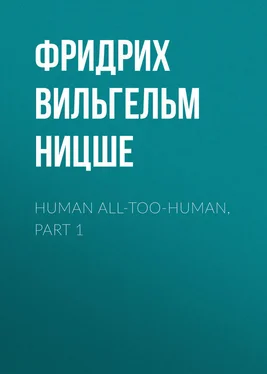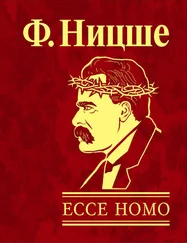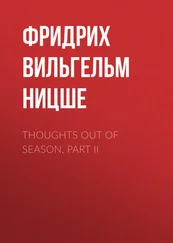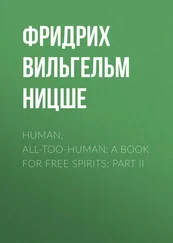Фридрих Ницше - Human All-Too-Human, Part 1
Здесь есть возможность читать онлайн «Фридрих Ницше - Human All-Too-Human, Part 1» — ознакомительный отрывок электронной книги совершенно бесплатно, а после прочтения отрывка купить полную версию. В некоторых случаях можно слушать аудио, скачать через торрент в формате fb2 и присутствует краткое содержание. Жанр: Философия, literature_19, foreign_antique, foreign_prose, на английском языке. Описание произведения, (предисловие) а так же отзывы посетителей доступны на портале библиотеки ЛибКат.
- Название:Human All-Too-Human, Part 1
- Автор:
- Жанр:
- Год:неизвестен
- ISBN:нет данных
- Рейтинг книги:4 / 5. Голосов: 1
-
Избранное:Добавить в избранное
- Отзывы:
-
Ваша оценка:
- 80
- 1
- 2
- 3
- 4
- 5
Human All-Too-Human, Part 1: краткое содержание, описание и аннотация
Предлагаем к чтению аннотацию, описание, краткое содержание или предисловие (зависит от того, что написал сам автор книги «Human All-Too-Human, Part 1»). Если вы не нашли необходимую информацию о книге — напишите в комментариях, мы постараемся отыскать её.
Human All-Too-Human, Part 1 — читать онлайн ознакомительный отрывок
Ниже представлен текст книги, разбитый по страницам. Система сохранения места последней прочитанной страницы, позволяет с удобством читать онлайн бесплатно книгу «Human All-Too-Human, Part 1», без необходимости каждый раз заново искать на чём Вы остановились. Поставьте закладку, и сможете в любой момент перейти на страницу, на которой закончили чтение.
Интервал:
Закладка:
The Possibility of Progress. – When a scholar of the ancient culture forswears the company of men who believe in progress, he does quite right. For the greatness and goodness of ancient culture lie behind it, and historical education compels one to admit that they can never be fresh again; an unbearable stupidity or an equally insufferable fanaticism would be necessary to deny this. But men can consciously resolve to develop themselves towards a new culture; whilst formerly they only developed unconsciously and by chance, they can now create better conditions for the rise of human beings, for their nourishment, education and instruction; they can administer the earth economically as a whole, and can generally weigh and restrain the powers of man. This new, conscious culture kills the old, which, regarded as a whole, has led an unconscious animal and plant life; it also kills distrust in progress, – progress is possible. I must say that it is over-hasty and almost nonsensical to believe that progress must necessarily follow; but how could one deny that it is possible? On the other hand, progress in the sense and on the path of the old culture is not even thinkable. Even if romantic fantasy has also constantly used the word "progress" to denote its aims (for instance, circumscribed primitive national cultures), it borrows the picture of it in any case from the past; its thoughts and ideas on this subject are entirely without originality.
Private and Œcumenical Morality. – Since the belief has ceased that a God directs in general the fate of the world and, in spite of all apparent crookedness in the path of humanity, leads it on gloriously, men themselves must set themselves œcumenical aims embracing the whole earth. The older morality, especially that of Kant, required from the individual actions which were desired from all men, – that was a delightfully naïve thing, as if each one knew off-hand what course of action was beneficial to the whole of humanity, and consequently which actions in general were desirable; it is a theory like that of free trade, taking for granted that the general harmony must result of itself according to innate laws of amelioration. Perhaps a future contemplation of the needs of humanity will show that it is by no means desirable that all men should act alike; in the interest of œcumenical aims it might rather be that for whole sections of mankind, special, and perhaps under certain circumstances even evil, tasks would have to be set. In any case, if mankind is not to destroy itself by such a conscious universal rule, there must previously be found, as a scientific standard for œcumenical aims, a knowledge of the conditions of culture superior to what has hitherto been attained. Herein lies the enormous task of the great minds of the next century.
Reaction As Progress. – Now and again there appear rugged, powerful, impetuous, but nevertheless backward-lagging minds which conjure up once more a past phase of mankind; they serve to prove that the new tendencies against which they are working are not yet sufficiently strong, that they still lack something, otherwise they would show better opposition to those exorcisers. Thus, for example, Luther's Reformation bears witness to the fact that in his century all the movements of the freedom of the spirit were still uncertain, tender, and youthful; science could not yet lift up its head. Indeed the whole Renaissance seems like an early spring which is almost snowed under again. But in this century also, Schopenhauer's Metaphysics showed that even now the scientific spirit is not yet strong enough; thus the whole mediæval Christian view of the world and human feeling could celebrate its resurrection in Schopenhauer's doctrine, in spite of the long achieved destruction of all Christian dogmas. There is much science in his doctrine, but it does not dominate it: it is rather the old well-known "metaphysical requirement" that does so. It is certainly one of the greatest and quite invaluable advantages which we gain from Schopenhauer, that he occasionally forces our sensations back into older, mightier modes of contemplating the world and man, to which no other path would so easily lead us. The gain to history and justice is very great, – I do not think that any one would so easily succeed now in doing justice to Christianity and its Asiatic relations without Schopenhauer's assistance, which is specially impossible from the basis of still existing Christianity. Only after this great success of justice, only after we have corrected so essential a point as the historical mode of contemplation which the age of enlightenment brought with it, may we again bear onward the banner of enlightenment, the banner with the three names, Petrarch, Erasmus, Voltaire. We have turned reaction into progress.
A Substitute For Religion. – It is believed that something good is said of philosophy when it is put forward as a substitute for religion for the people. As a matter of fact, in the spiritual economy there is need, at times, of an intermediary order of thought: the transition from religion to scientific contemplation is a violent, dangerous leap, which is not to be recommended. To this extent the recommendation is justifiable. But one should eventually learn that the needs which have been satisfied by religion and are now to be satisfied by philosophy are not unchangeable; these themselves can be weakened and eradicated. Think, for instance, of the Christian's distress of soul, his sighing over inward corruption, his anxiety for salvation, – all notions which originate only in errors of reason and deserve not satisfaction but destruction. A philosophy can serve either to satisfy those needs or to set them aside ; for they are acquired, temporally limited needs, which are based upon suppositions contradictory to those of science. Here, in order to make a transition, art is far rather to be employed to relieve the mind overburdened with emotions; for those notions receive much less support from it than from a metaphysical philosophy. It is easier, then, to pass over from art to a really liberating philosophical science.
Ill-famed Words. – Away with those wearisomely hackneyed terms Optimism and Pessimism! For the occasion for using them becomes less and less from day to day; only the chatterboxes still find them so absolutely necessary. For why in all the world should any one wish to be an optimist unless he had a God to defend who must have created the best of worlds if he himself be goodness and perfection, – what thinker, however, still needs the hypothesis of a God? But every occasion for a pessimistic confession of faith is also lacking when one has no interest in being annoyed at the advocates of God (the theologians, or the theologising philosophers), and in energetically defending the opposite view, that evil reigns, that pain is greater than pleasure, that the world is a bungled piece of work, the manifestation of an ill-will to life. But who still bothers about the theologians now – except the theologians? Apart from all theology and its contentions, it is quite clear that the world is not good and not bad (to say nothing of its being the best or the worst), and that the terms "good" and "bad" have only significance with respect to man, and indeed, perhaps, they are not justified even here in the way they are usually employed; in any case we must get rid of both the calumniating and the glorifying conception of the world.
Intoxicated by the Scent of the Blossoms. – It is supposed that the ship of humanity has always a deeper draught, the heavier it is laden; it is believed that the deeper a man thinks, the more delicately he feels, the higher he values himself, the greater his distance from the other animals, – the more he appears as a genius amongst the animals, – all the nearer will he approach the real essence of the world and its knowledge; this he actually does too, through science, but he means to do so still more through his religions and arts. These certainly are blossoms of the world, but by no means any nearer to the root of the world than the stalk; it is not possible to understand the nature of things better through them, although almost every one believes he can. Error has made man so deep, sensitive, and inventive that he has put forth such blossoms as religions and arts. Pure knowledge could not have been capable of it. Whoever were to unveil for us the essence of the world would give us all the most disagreeable disillusionment. Not the world as thing-in-itself, but the world as representation (as error) is so full of meaning, so deep, so wonderful, bearing happiness and unhappiness in its bosom. This result leads to a philosophy of the logical denial of the world, which, however, can be combined with a practical world-affirming just as well as with its opposite.
Читать дальшеИнтервал:
Закладка:
Похожие книги на «Human All-Too-Human, Part 1»
Представляем Вашему вниманию похожие книги на «Human All-Too-Human, Part 1» списком для выбора. Мы отобрали схожую по названию и смыслу литературу в надежде предоставить читателям больше вариантов отыскать новые, интересные, ещё непрочитанные произведения.
Обсуждение, отзывы о книге «Human All-Too-Human, Part 1» и просто собственные мнения читателей. Оставьте ваши комментарии, напишите, что Вы думаете о произведении, его смысле или главных героях. Укажите что конкретно понравилось, а что нет, и почему Вы так считаете.












